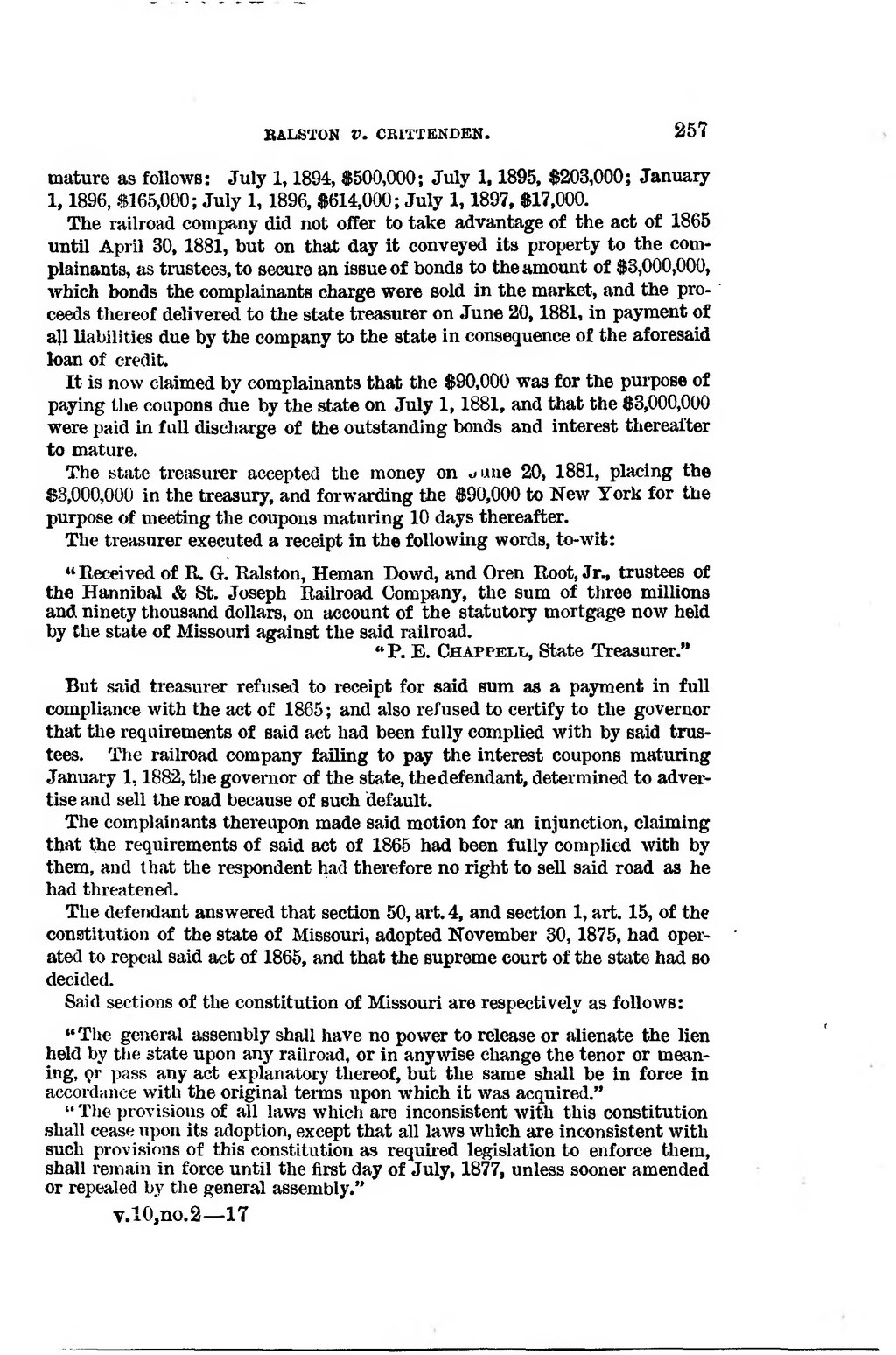BALSTON V. CRITTENDEN. 257 �mature as follows: July 1, 1894, $500,000; July 1, 1895, $203,000; January 1, 1896, «165,000; July 1, 1896, $614,000 ; July 1, 1897, $17,000. �The railroad company did not ofEer to take advantage of the act of 1865 untU April 30, 1881, but on that day it conveyed its property to the com- plainants, as trustees, to secure an issue of bonds to theamount of $3,000,000, whieh bonds the complainants charge were sold in the market, and the pro- ceeds thereof delivered to the state treaaurer on June 20, 1881, in payment of all liabilities due by the company to the state in consequence of the aforesaid loan of credit. �It is novv claimed by complainants that the $90,000 was for the purpose of paying the coupons due by the state on July 1, 1881, and that the $3,000,000 were paid in f ull discharge of the outstanding bonds and interest thereafter to mature. �The state treasurer accepted the money on o une 20, 1881, placing the $3,000,000 in the treasury, and forwarding the $90,000 to New York for the purpose of meeting the coupons maturing 10 days thereafter. �The treasurer executed a receipt in the following words, to-wit: �"Eeceived of E. G. Ealston, Heman Dowd, and Oren Eoot, Jr., trustees of the Hannibal & St. Joseph Eailroad Company, the sum of three millions and ninety thousand dollars, on account of the statutory mortgage now held by the state of Missouri against the said railroad. �"P. E. Chappell, State Treasurer." �But said treasurer refused to receipt for said sum as a payment in full compliance with the act of 1865; and also relused to certify to the governor that the requirements of said act had been fully complied with by said trus- tees. The railroad company failing to pay the interest coupons maturing January 1, 1882, the governor of the state, the defendant, determined to adver- tise and sell the road because of such default. �The complainants thereupon made said motion for an injunction, claiming that the requirements of said act of 1865 had been fully complied with by them, and that the respondent had therefore no right to sell said road as he had threatened. �The defendant answered that section 50, art. 4, and section 1, art. 15, of the constitution of the state of Missouri, adopted November 30, 1875, had oper- ated to repeal said act of 1865, and that the supreme court of the state had so decided. �Said sections of the constitution of Missouri are respectively as follows: �"Tlie general assembly shall have no power to release or alienate the lien held by the state upon any railroad, or in any wise change the tenor or mean- ing, 9r pass any act explanatory thereof, but the same shall be in force in accordiiiice witb the original terms upon which it was acquired." �" The inovisioiis of all laws which are inconsistent with thls constitution shall cease upon its adoption, except that all laws which are inconsistent with Bueh provisions of this constitution as required legislation to enforce them, shall remain in force until the first day of July, 1877, unless sooner amended or repealed by the general assembly." �V.10,no.2— 17 ��� �
